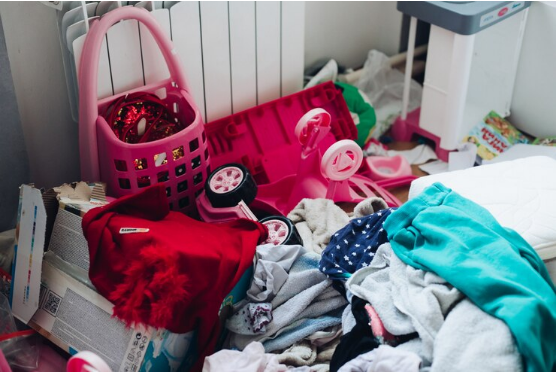
5 Signs You Have Too Much Stuff
In our consumer-driven society, it’s all too easy to accumulate possessions over time. While owning material possessions is not inherently bad, it’s important to recognize when our belongings have started to overwhelm our living spaces and affect our well-being. Living with excessive stuff can have adverse effects on our mental, emotional, and physical health. In this article, we will explore the signs that indicate you have too much stuff and how decluttering can bring positive changes to your life.
-
Difficulty finding things
One of the most obvious signs that you have too much stuff is when you struggle to find what you need. If you find yourself constantly rummaging through cluttered drawers, overflowing closets, or piles of items, it’s a clear indication that you own more things than you can manage effectively. This disorganization can lead to stress, wasted time, and a general sense of frustration.
-
Limited living space
When your living space feels cramped and suffocating due to the sheer volume of your possessions, it’s a sign that you may have too much stuff. If your countertops, tables, and floors are constantly covered with items, leaving little room to move around freely, it’s time to reevaluate your belongings. A cluttered living space can negatively impact your mental well-being, making it difficult to relax and unwind.
-
Emotional attachment to possessions
Developing emotional attachments to our belongings is natural, but when the emotional connection outweighs their practical value, it becomes a problem. If you find it challenging to let go of items that no longer serve a purpose or bring you joy, you may be holding onto too much stuff. This emotional attachment can lead to cluttered spaces filled with sentimental items, making it difficult to create a harmonious living environment.
-
Constant impulse buying
Frequent impulse buying is another sign that you have too much stuff. If you often find yourself purchasing items on a whim or being unable to resist a good deal, you may be accumulating possessions without considering their long-term value or necessity. This behavior can quickly lead to an overwhelming amount of clutter, leaving you with more stuff than you can reasonably use or enjoy.
-
Financial strain
Having too much stuff can also lead to financial strain. If you’re spending a significant portion of your income on buying and maintaining possessions, it can prevent you from saving money for more important goals or experiences. Additionally, the cost of storing and organizing your belongings, such as renting storage units or buying storage containers, can add up over time and strain your finances.
Conclusion
Recognizing the signs that you have too much stuff is the first step towards regaining control over your living space and improving your well-being. Clearing the clutter can lead to a more organized and peaceful environment, allowing you to focus on what truly matters. Consider adopting minimalist principles, such as the KonMari method or regular decluttering sessions, to create a space that reflects your values and enhances your quality of life. Remember, the true value of your possessions lies in their ability to bring joy, usefulness, and purpose to your life, rather than merely occupying space.


